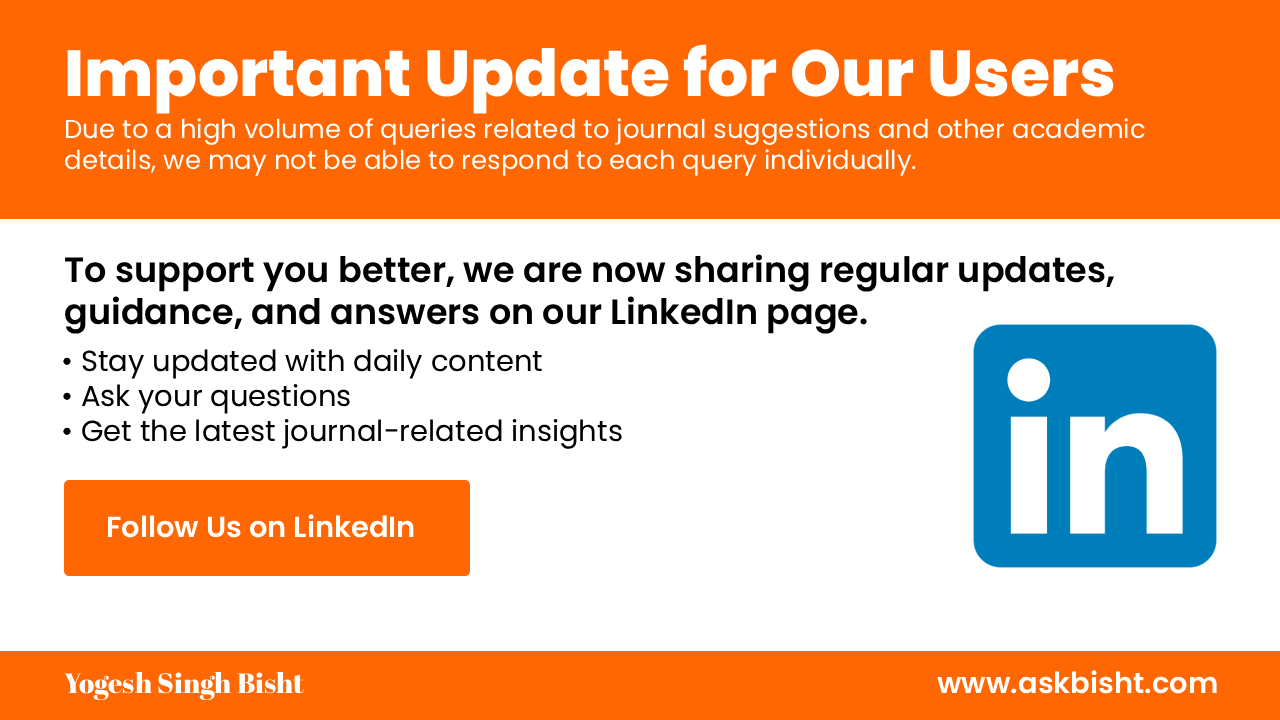Electronic Library
Published by Emerald Publishing (Journal Finder)
ISSN : 0264-0473
Abbreviation : Electron. Libr.
Aims & Scope
Submissions are expected to address one or more well thought-out problems or challenges in information organization and be designed with a rigorous research methodology.
Studies should have more than local interest and bring new knowledge to the readership.
It is highly recommended that authors complete all the fields in the structured abstract, including the research limitations/implications, practical implications and social implications, to facilitate editors and reviewers’ understanding of the significance of the submission.
Studies that do not have a good research design and bring no new knowledge will be considered insignificant.
The editors are likely to reject submissions that are not related to data or information organization, such as bibliometric studies and pure user behavioural studies applying survey methods.
Exceptions are made for the types of studies that develop innovative approaches to organize collected data for the purposes of expediting data analysis or research finding assessment.
In general, survey studies exploring the use of information resources in a particular library, a university or a nation will not be accepted unless the study provides generalizable new knowledge for information resource organization for a particular community or population.
The journal welcomes submissions on: Personal digital archiving Digital ‘life’ The cultural record Scholarly communication Social media interaction and analysis Health communication Geographical information Big data Security and governance Language and lexicons Classification and coding.
View Aims & ScopeMetrics & Ranking
Impact Factor
| Year | Value |
|---|---|
| 2025 | 1.5 |
SJR (SCImago Journal Rank)
| Year | Value |
|---|---|
| 2024 | 0.412 |
Quartile
| Year | Value |
|---|---|
| 2024 | Q2 |
h-index
| Year | Value |
|---|---|
| 2024 | 49 |
Impact Factor Trend
Abstracting & Indexing
Journal is indexed in leading academic databases, ensuring global visibility and accessibility of our peer-reviewed research.
Subjects & Keywords
Journal’s research areas, covering key disciplines and specialized sub-topics in Computer Science and Social Sciences, designed to support cutting-edge academic discovery.
Most Cited Articles
The Most Cited Articles section features the journal's most impactful research, based on citation counts. These articles have been referenced frequently by other researchers, indicating their significant contribution to their respective fields.
-
Phishing web site detection using diverse machine learning algorithms
Citation: 138
Authors: Ammara, Hikmat Ullah, Tassawar, Nazish, Farah, Almas, Maryam
-
Smart libraries: an emerging and innovative technological habitat of 21st century
Citation: 132
Authors: Sumeer, Shohar
-
Predictors for e-government adoption: integrating TAM, TPB, trust and perceived risk
Citation: 117
Authors: Qijun, Wei, Xiaobao, Muhammad
-
The effects of online service quality of e-commerce Websites on user satisfaction
Citation: 113
Authors: Gajendra, Wang
-
Eâ€readiness of SMEs in the ICT sector in Botswana with respect to information access
Citation: 107
Authors: Stephen M., Pieter
-
Scholarly communication and possible changes in the context of social media
Citation: 93
Authors: Feng, Gunilla
